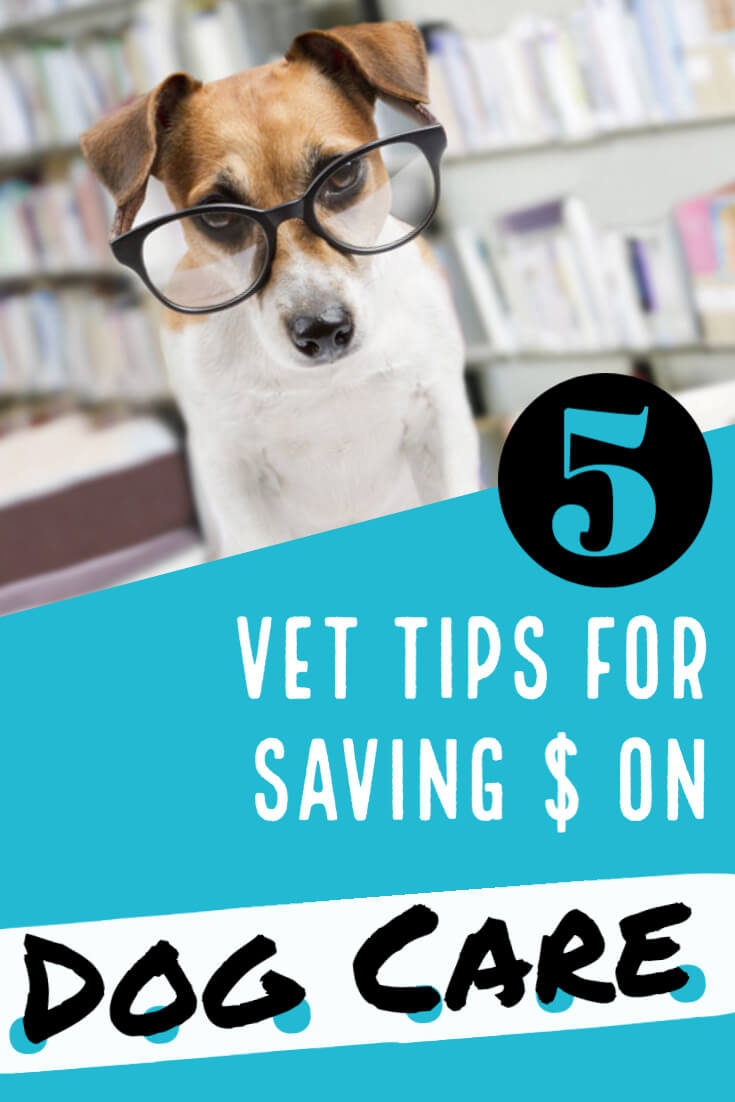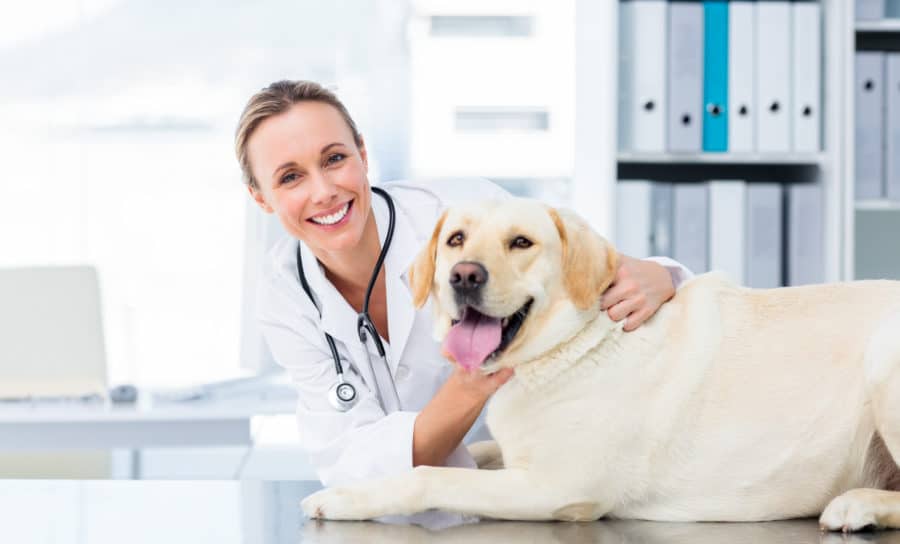Right now, in these uncertain times, we’re all trying to save money–including saving money on our dog’s care. We’ve got tips from Dr. Jeff Werber, a veterinarian who is well-known to television audiences, on five ways you can save money on your dog’s veterinary care.

1) Schedule Puppy/Kitten Vaccine Series and exams.
Though many of us feel that we, as a profession, have been over-vaccinating our adult dogs and cats, we definitely all agree that the initial puppy or kitten series of vaccinations are essential for the overall health and development of a young dog or cat.
Making sure that a new pet is also parasite-free can also ensure a more optimal health and disease-free development.
2) Stay up on preventive care.

In general, the best way to “treat” many problems in our pets is to prevent them!
Keeping our pets lean, on an appropriate diet and nutrition regimen (including, when appropriate, vitamin and nutritional supplements – like Pro Sense Multi Vitamin), well exercised (both mentally and physically), and well groomed.
We highly recommend starting your pets when they are young on having their ears cleaned, toe nails trimmed, teeth brushed, etc., and making it fun with plenty of positive reinforcement so they will continue to allow you to continue these practices through adulthood.
There are an abundance of different products you can check out. I personally recommend Pro Sense’s Dental Kit and their Ear Wash to help maintain your pup’s hygiene.
And, don’t forget those senior exams! As seniors, your pets should be examined at least once a year!
3) Know your pet’s “normals!”
You really need to know what your pet looks and feels like when he or she is in perfect health, so you’ll be able to recognize when they’re not!
Take a good look at their ears (including a good whiff!), their eyes (including the sclera, or whites of the eyes), their skin and coat (not dry, flaky, scabby, patches of hair loss, or parasites), their body shape and muscle tone (make sure you can’t “pinch that inch” but can appreciate good muscle definition, and movement and energy.
If any of these characteristics change, don’t wait too long to see if they may resolve on their own.
The earlier a problem is caught, the better for your pet, and very likely less expensive for you.
4) Anticipate problems BEFORE they actually become problems.
Make sure your pets (especially dogs) have adequate shelter and water if they are left outside all day.
Hide or lock away any toxic chemicals or household products and medications so you won’t have to deal with emergency stomach pumping or treatment.
Puppy- and Kitten-proof your homes to avoid any disasters. Know what household plants and foods are dangerous to your pets, and make sure to keep your pets away from them.
Never keep a dog in a parked car during warm weather, and never exercise them in the middle of the day during spring or summer.
If they are known to panic or freak out during 4th of July or during thunderstorms, give them something to calm them naturally so they don’t injure themselves, like Pro Sense Calming Tabs.
Make sure to keep doors and screens secure and make sure all your pets are microchipped and are wearing I.D. tags.
5) Don’t forget the training.
Don’t take this for granted—a well behaved, well trained pet is more likely to be more “bonded” to the family, and more likely becoming part of the family.
Certainly, a pet that listens well and follows the rules of the household is more likely to remain safe.
Avoiding these accidents can save a great deal of money, because emergency medical care can be very costly. Since puppies are fairly hyper, you may need to use a natural calming supplement to help them respond better to training, like Pro Sense Calming Tabs.

About the Author: To learn more about Dr. Jeff, visit www.drjeff.com and www.prosensepet.com. Follow along with what’s new with Dr. Jeff on his Facebook page and @drwerber Twitter account, too!
Originally published in 2013


























